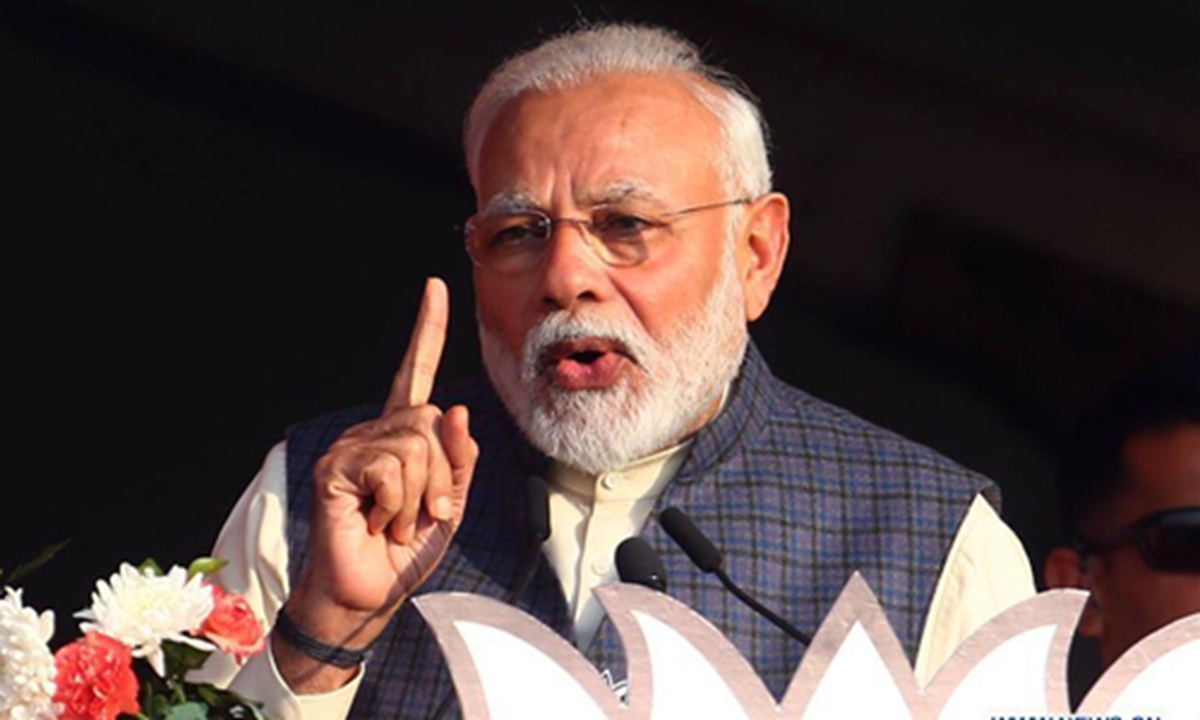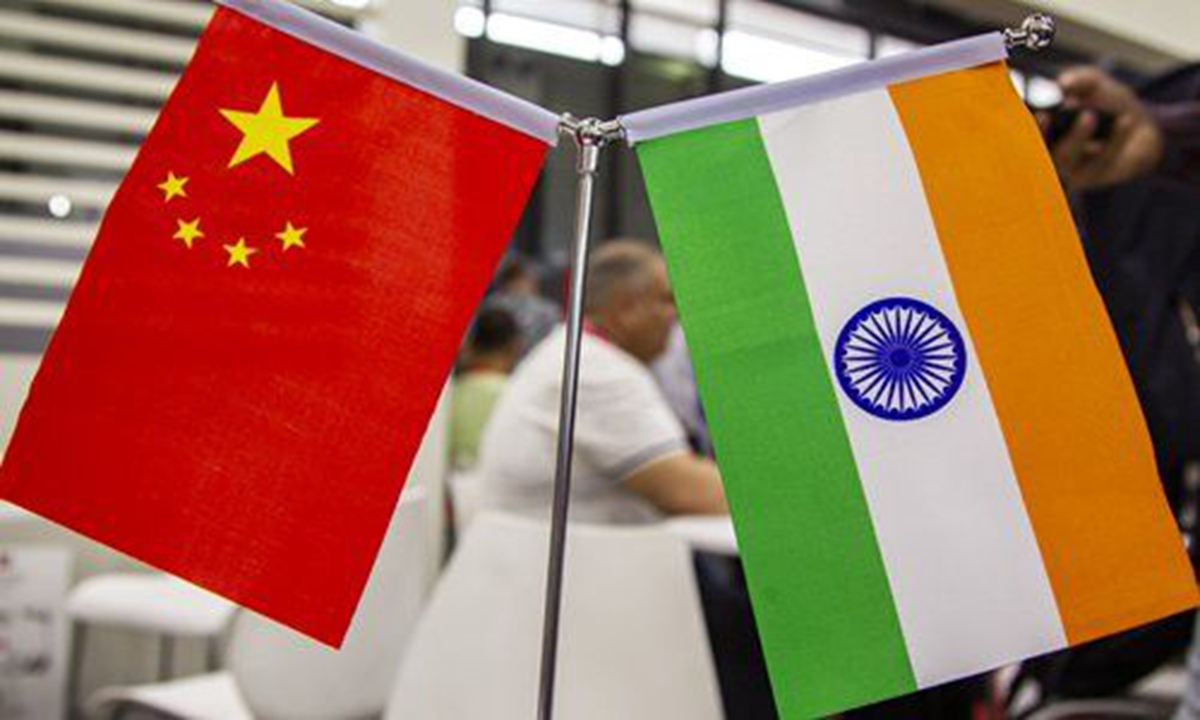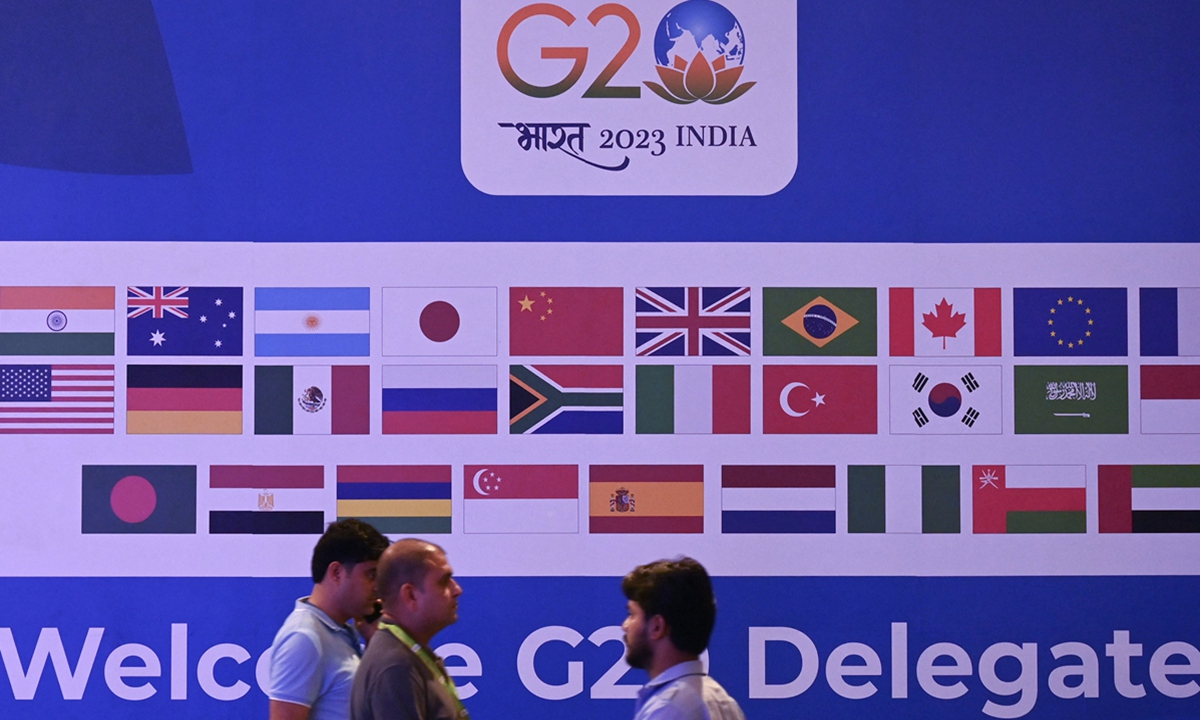India renews anti-dumping tariff on some Chinese steel; demands for China's high-quality, affordable steel remain

Workers weld steel at a processing workshop in Hefei, East China's Anhui Province, on July 10, 2023. Temperatures at the workshop averaged 60 C. Protection measures have been carried out to cope with the high-temperature working environment and to ensure work safety. Photo: VCG
India has renewed an anti-dumping duty on some Chinese steel for five years, the Times of India reported, citing a government notice, in the latest attempt to reduce reliance on China and inch closer to the West's "decoupling" policy, analysts said.
However, observers warned that India, which remains a developing nation, will still need China's high-quality and low-priced products.
India has imposed an anti-dumping duty on some Chinese steel for a period of another five years, according to a report from the Times of India, citing an official gazette by the Ministry of Finance.
An anti-dumping duty of $613 per ton has been imposed on flat-base steel wheels from China, according to the notification released on Monday. Such duty on steel wheels was imposed in 2018 and now the ministry has recommended a continued imposition for another five years.
From April to July, China was the second-biggest steel exporter to India after South Korea, selling 600,000 metric tons, up 62 percent year-on-year.
The Indian government has been working hard to follow the West in coordinating "decoupling" moves against China. However, China-India trade rose instead of falling last year, which prompted Indian government departments to find ways to further reduce the nation's China dependence, Lin Minwang, deputy director at the Center for South Asian Studies of Fudan University, told the Global Times on Tuesday.
In this context, the new tariffs on steel imports from China are the latest attempt, Lin said.
Total bilateral trade reached 619.69 billion yuan ($84.49 billion) during the first eight months of 2023, up 5.2 percent year-on-year, according to data released by the General Administration of Customs of China on Thursday.
From January to August, China's exports to India reached 533 billion yuan, up 5.2 percent from a year earlier.
The growing momentum comes as India has continuously suppressed Chinese-funded enterprises, but Chinese imports are also a vivid display showing Indian companies need Chinese products.
Given that India has just hosted the G20 summit and is in its "prime moment," it may further suppress Chinese companies and products, thereby creating greater resistance to economic and trade relations, Lin said.
This may provide opportunities for Western or Japanese and South Korean companies and products to enter India. But India is not a developed country after all, and it cannot ignore the benefits brought by China's high-quality and low-priced products.
Global Times



